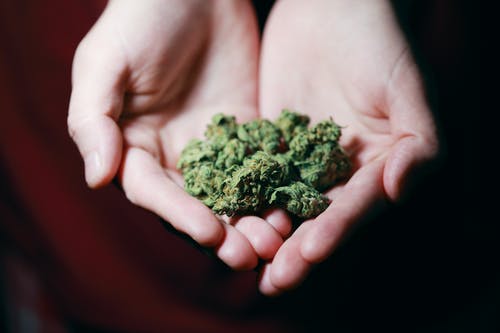You are here
Home 🌿 Medical Cannabis News 🌿 Program giving out free cannabis to help opioid users in London, Ont., met with skepticism 🌿Program giving out free cannabis to help opioid users in London, Ont., met with skepticism

Cannabis Substitution Program in London since April, similar initiatives in Halifax and Vancouver
Every Tuesday, Mary McCarty and a group of volunteers sets up a small table outside a London, Ont., church to hand out free cannabis and cannabis edibles to a line of people that often runs well down the block.
She's part of a group called the Cannabis Substitution Program, a volunteer-run organization that hands out free cannabis and cannabis edibles to people who use drugs.
The group claims "high-dose" edibles — as much as 100 mg of tetrahydrocannabinol (THC) served in baked goods — can serve as a treatment and replacement for opioids and other drugs.
The cannabis is donated and paid for by private citizens, it says.
McCarty and other volunteers have been handing it out in London since April, with similar initiatives in Halifax and Vancouver.
"I thought, 'You know what? London needs one of these,'" McCarty said. "It's ridiculous what's going on."
She said she's seen first hand how cannabis has changed the lives of people suffering from addiction.
"People come and thank us all the time."
Experts say evidence is lacking
But evidence supporting the claims is scarce, a researcher says.
"I'm not aware of any evidence to suggest that would be effective as a substitute for opioid-related dependence and addiction," said Steven Laviolette, professor in the School of Medicine and Dentistry at Western University in London.
Laviolette's research focuses on neurobiological and developmental mechanisms underlying various psychiatric disorders, including opioid addiction. He said high doses of THC may even be counterproductive in trying to give up opioids.
"THC has been shown to cause overactivation of addiction pathways in the brain," he said. "It could make it even worse because THC would be ramping up the brain's addiction pathways and could potentially make problems like relapse and withdrawal an even greater issue for people suffering with opioid dependence."
But he said that doesn't mean cannabis products can't be used to help treat addiction.
He has conducted research into the use of cannabidiol (CBD), another compound found in cannabis, in treating amphetamine addiction.
"We were able to show that it quite literally blocked the activation of these drugs on the dopamine neurons, so the neurons would stop firing in the presence of CBD," he said. "That has really strong implications for CBD as an anti-addiction treatment."
He said there has been promising research in the United States about CBD as a potential aid in treating opioid addiction as well.
While THC may not be an effective treatment for opioid addiction, said Laviolette, it may be helpful with some of the symptoms of opioid withdrawal — like nausea and tremors.
"But it's putting a bandage on [the problem], right?" he said. "It's not solving the underlying addictive properties. It's not solving the underlying opioid-related changes in the brain."
Group wants permanent location
Supporters say they've seen those effects first hand.
"To be honest, weed will never cure dope sickness," said Stefan Nichol, outreach director at Impact Church, and a supporter of the substitution program. "But it does help people sleep through a day of it."
Word has caught on that edibles are available, and while volunteers are only doing handouts for about two hours per week, as many as 200 people will line up.
McCarty said the next step is a permanent storefront in London to help provide low-barrier access to cannabis for people who can't afford to purchase from other retailers.
She plans to move to Winnipeg soon, and intends to start another program.
420 Intel is Your Source for Marijuana News
420 Intel Canada is your leading news source for the Canadian cannabis industry. Get the latest updates on Canadian cannabis stocks and developments on how Canada continues to be a major player in the worldwide recreational and medical cannabis industry.
420 Intel Canada is the Canadian Industry news outlet that will keep you updated on how these Canadian developments in recreational and medical marijuana will impact the country and the world. Our commitment is to bring you the most important cannabis news stories from across Canada every day of the week.
Marijuana industry news is a constant endeavor with new developments each day. For marijuana news across the True North, 420 Intel Canada promises to bring you quality, Canadian, cannabis industry news.
You can get 420 Intel news delivered directly to your inbox by signing up for our daily marijuana news, ensuring you’re always kept up to date on the ever-changing cannabis industry. To stay even better informed about marijuana legalization news follow us on Twitter, Facebook and LinkedIn.




